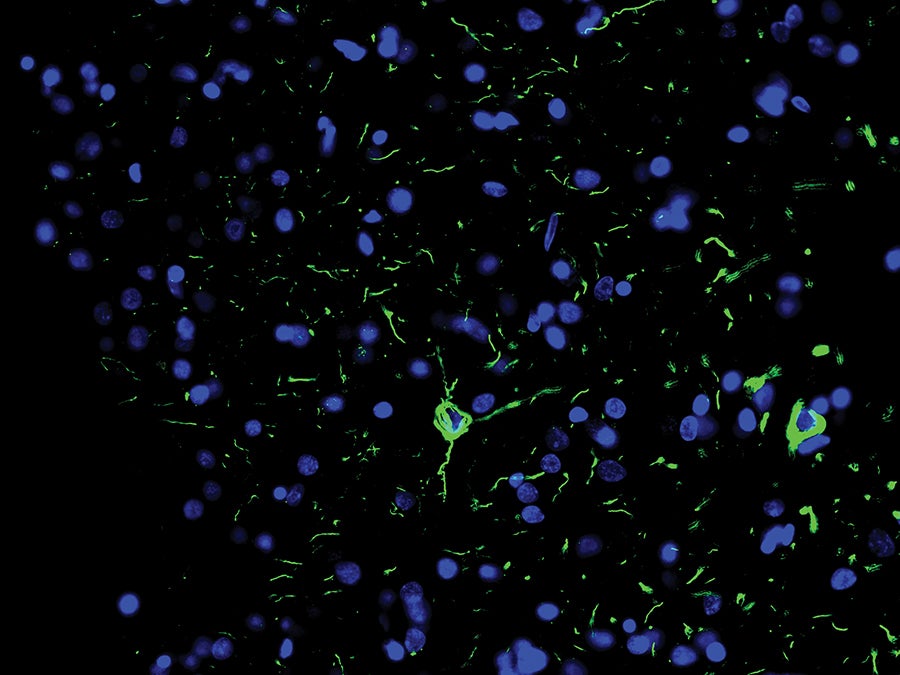lens
Unraveling a Gender Disparity
New research to understand why Alzheimer's disease is more common in women
 PHOTO: ALEXA WOO'S LABThis image is of a frontal cortex section of the brain of a person with Alzheimer's disease, with accumulations of tau shown in green and cell nuclei shown in blue.
PHOTO: ALEXA WOO'S LABThis image is of a frontal cortex section of the brain of a person with Alzheimer's disease, with accumulations of tau shown in green and cell nuclei shown in blue.Case Western Reserve's Alexa Woo and David Kang are on the hunt to answer a vexing question: Why does Alzheimer's disease strike women more often than men?
Several factors may be at play, including that women live longer than men and the disease is associated with age. But scientists know that abnormally high levels of tau protein in the brain can form the plaques and tangles common with the
disease—and that women accumulate more tau than men.

Alexa Woo
Woo, PhD, an assistant professor of pathology, and Kang, PhD, the Howard T. Karsner Professor in Pathology at the School of Medicine, recently discovered that a particular enzyme responsible for higher levels of tau in the brain is more prevalent in women than in men. And, in laboratory research, the two researchers found that when the activity of an enzyme, known as USP11, is blocked, less tau accumulates.
"We hope to not only advance treatment for Alzheimer's disease (AD)," Woo said, "but also develop new perspectives and potential therapies for a variety of related disorders."
Last November, the Society of Neuroscience honored Woo with a Janett Rosenberg Trubatch Career Development Award. It recognizes her work to better understand and manage neurodegenerative disorders, including AD, and her contributions to the advancement of women in neurosciences.
Woo and Kang are now testing several drugs to target USP11's activity, she said, and preclinical tests are yielding promising results.
WOMEN AND ALZHEIMER'S DISEASE*
Almost two-thirds of Americans living with Alzheimer's disease are women.
A woman's estimated lifetime risk of developing Alzheimer's at age 65 is one in five.
Women in their 60s are more than twice as likely to develop Alzheimer's over the rest of their lives as they are to develop breast cancer.
*Source: Alzheimer's Association
— PATTY ZAMORA





